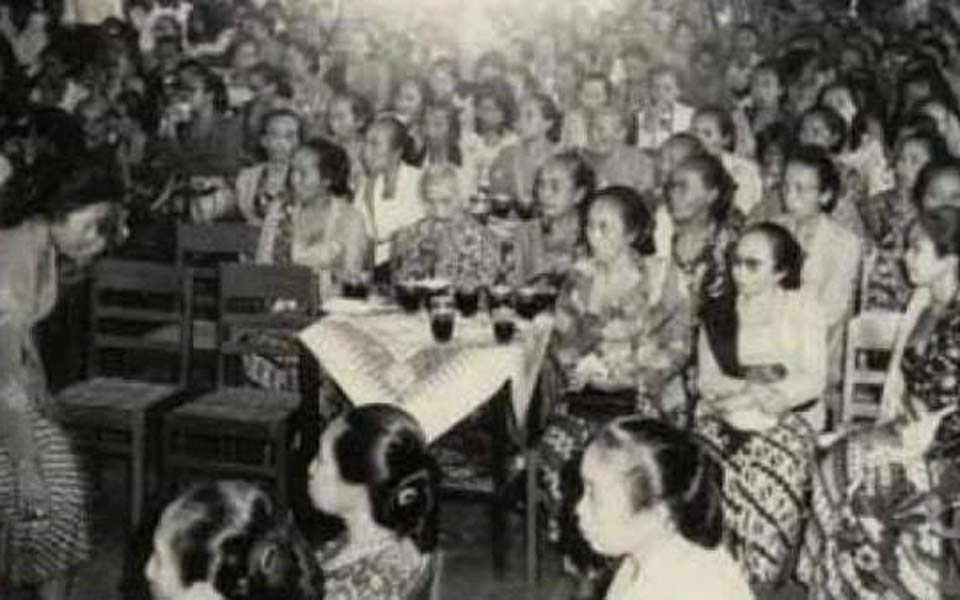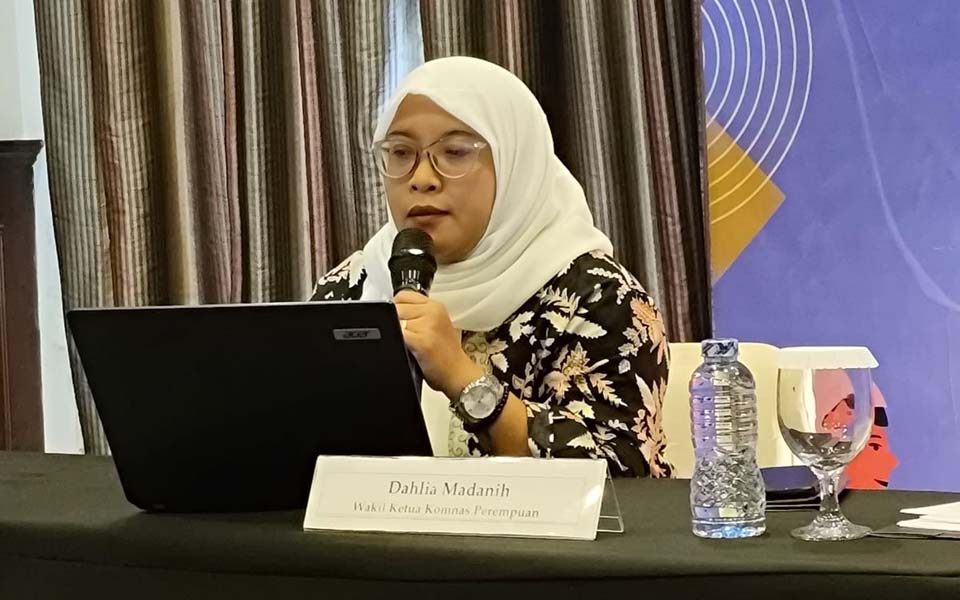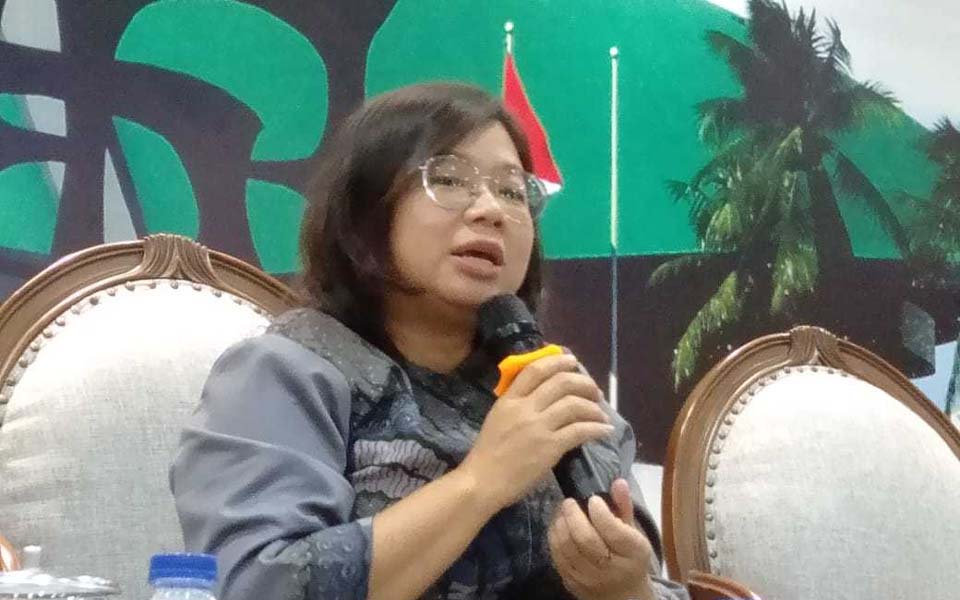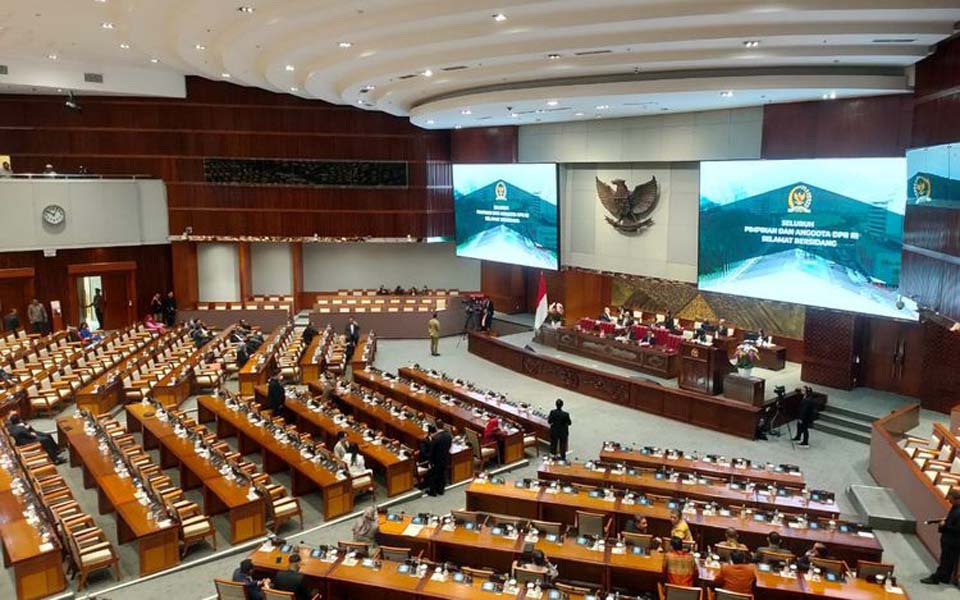Leon Kastayudha – Indonesia celebrates National Mother’s Day on December 22nd. As in other countries, Mother’s Day is a mainstream commemoration filled with gestures of appreciation to mothers, flowers, and or other commercial gifts. And we shouldn’t forget that every school will also organise femininity contests such as kebaya blouse fashion shows and cooking or flower arranging competitions – social events that actually reflect sexist ideas.
Sexism is discrimination, stereotypes or prejudice that disadvantage both men and women, especially those from the lower social classes. Mother’s Day in Indonesia is sexist because women are portrayed as domestic workers. Through these social events, women – even young girls – play the role of a patriarchal social construct that defines their social role as a domestic wife.
Socialism argues that domestic work is an activity to produce and reproduce labour. Women – especially stay at home mothers – are obligated to play the dominant role of child care and preparing children with skills that will be useful for the labour market. On the other hand, under the capitalist system, the nurturing role of mothers in caring for children and husbands is free labour to refresh their husband’s labour so they are ready to used and exploited again by the capitalists the next day.
In the mainstream culture, domestic work is praised as a form of heroism and sacrifice by women. However, at the same time, capitalism does not reward or provide social support for mothers. In contrast, women have become the main demographic target for commercial marketing and products to support the growth of capitalism. Women are told to buy cosmetics, clothes, and other commercial products for their family members as a means to support capitalism.
In the beginning, Indonesia’s founding president and socialist, Sukarno, established Indonesian Women’s Day with the spirit of promoting emancipation for Indonesian women. The proposed day was inspired by the first Congress of Indonesian Women on December 22, 1928. The Congress was held over four days in Gedung Dalem Jayadipuran, Yogyakarta, Central Java. Thirty women organisations from twelve regions across Java and Sumatera with a total of around 600 women attended the congress. Its aim was to establish the union of women’s organisations to fight for human rights and equality in education and marriage. One of the major outcomes of the congress was the agreement to set up a federal organisation called Perikatan Perkumpulan Perempuan Indonesia (Union of Indonesian Women’s Associations, PPPI) and an official newspaper.
Nevertheless, the congresses and its outcomes were not without contractions. First, the congress was limited to native Indonesians. The congress in 1928 banned women from European, Chinese, Arabic, and other ethnicities from taking part. Secondly, the issue of polygamy was not discussed or any agreement reached on how to fight it. In fact, a conservative female activist from the Sumatra Indonesian Muslims Association (Permi), Ratna Sari, gave a speech that openly defended the practice of polygamy. This speech was strongly protested against by Soewarni Pringgodigdo from the Sedar Wives Association. Third, there was no unity of perspectives about how to take the congress ahead leaving the organisations adrift in perceiving the issues of women’s emancipation. Instead, they focused on the household, women’s liberation and combining them with a political agenda to resist colonialism.
This background created tensions over the establishment of the First Indonesian Women Congress as National Mother’s Day. Sukarno was also overwhelmed with the criticisms about choosing Kartini as a symbol for Indonesian women’s emancipation. Kartini was considered as an elite woman that made compromises with the Dutch and only represented women in Jepara and Rembang. On the other hand, there were criticisms that Sukarno established Mother’s Day to legitimise the practice of polygamy in his own marriage. He married Kartini Manoppo in 1959 then Nemoto Naoko in 1962 without divorcing Fatmawati. Sukarno married these three women and decided to live separately from Fatmawati. He then changed Nemoto Naoko’s name to Ratna Dewi Sukarno. In the following year he married Haryati then Yurike Sanger in 1964. Two years later he was married to Heldy Djafar.
Related to this, the Movement of Aware Women (Gerakan Wanita Sedar, Gerwis), which later transformed itself into the Indonesian Women’s Movement (Gerwani) after its establishment in 1950, was strongly against polygamy. Unfortunately, the dominant influence of the Indonesian Communist Party (PKI) on Gerwani made them unable to criticise Sukarno’s practice of polygamy. This was because the PKI and Sukarno were in alliance in support of the Block of Four Social Classes (an alliance of the working class, farmers, the national bourgeoisie and petty bourgeoisie). Gerwani who had strongly opposed polygamy was instead silent about Sukarno’s polygamy. Yet the activists that supported Indonesian women’s emancipation and criticised polygamy at the time were mostly form outside Gerwani.
These days, Indonesian feminists strongly oppose Mother’s Day being used as a means to promote the values of the domestication of women. Feminist media such as Jurnal Perempuan and Magdalene are two major force that are against Mother’s Day. These publications warn that Mother’s Day in Indonesia was established in the spirit of woman emancipation and gender equality by the Congress of Indonesian Women. They also emphasise that the concept of “Ibu” (or Mother) on Mother’s Day should not limited to appreciating biological mothers or women who choose to stay at home, but that the meaning of “Ibu” refers a respectful way to address Indonesian women.
Efforts to reclaim the Mother’s Day by feminist groups such as Jurnal Perempuan and Magdelene seems to be progressive, however such an approach has created ageism as a result. The concept of “Ibu” in Indonesian as a respectful way to address women signals that the respect is earned because a woman is old, older, or old enough. A young woman, even though they are actively involved in woman emancipation activism will never be addressed as “Ibu”. This reflects the feudalism in Indonesian society that is inherited from patriarchal practices.
In fact, the concept of “Ibu” as a respectful term is a form of dialectics and according to Marx is the unity of the opposites of sexism itself. Sexism in a capitalist society on one hand discriminates and oppresses working class women. In order to cover the practices of oppression and to avoid resistance, capitalism needs hegemony in various forms of social and cultural constructs so that not just women, but society, accepts it and defends this oppression.
Some of the manifestations of this are an over-extravagant praise, affirming women’s domestic work, even to cult of “ibu-isme” or motherism. The title “Ibu” is considered a respectful greeting, but actually it is no more than a reflection of inequality and disparity. We need to remember that female neighbourhood heads, mayors, and governors are often called by their husband’s name so this is no more than positioning women as their husband’s property or the extension of their husband’s position. We need to open our eyes. Not be tricked into romanticisms or illusions. Over-extravagant praise of Ibu-ism allows the continued domestication of women and therefore reinforces sexism and oppression of women.
Socialists do not see domestic work as being the natural work of women. What is considered “nature” is that which is tied to anything biological and related to sex. Domestic work must be based on a mutual agreement and divided fairly between those who wish to be married. Even domestic work need to be industrialised and transformed into a public sector that liberates women from domestic work. The work of cooking and preparing meals can be provided by the catering industry, public kitchen, or food delivery services. The work of washing and ironing can be provided by the laundry industry. The work of house cleaning can be provided by cleaning service industry or cleaning services. Child minding can be provided by the child care industry. Unfortunately, under capitalism, these industries, even though they exist, are still unaffordable for working class women. The high cost of these services under capitalism makes them only partly accessible to middle-class women, majority of which come from the elite class. Only by the establishment of a workers state and a socialist order, will it be possible to establish such industries that are democratically controlled by workers and working people and essentially equipped with social services for the public which are fully funded and facilitated.
Socialists support the fight for women’s liberation and equality. However, this cannot be achieved without the fight for social justice for all. This can’t just be included in aspiration, programs, demands, and rhetoric, but must also be exercised in the act of struggle. Socialists reject the title of “Ibu” as a mark of respect. Socialists also reject the title of “Bapak”, “Abah”, “Mas”, “Mbak”, “Ndoro” and other titles that seem to be out of respect, but actually allow discrimination against age, seniority, gender and so forth. Humans should be able to address each other by their first name, equally. Therefore, the left in Indonesia only uses the term “Bung” for their male peers and “Zus” for their female peers, both are equal to “comrade”. Socialists in particular only call each other “comrade” or “mate” as the symbol of equality for those who struggle in the same fight against the tyranny.
We no longer need to commemorate Mother’s Day if it only enforces the domestication of women and inequality. What we need is the momentum to establish the women’s liberation movement against sexism and capitalism. That can be achieved from International Working Women’s Day which is commemorated every March 8th. An internationalist position can promote solidarity between oppressed (women’s) groups throughout the world and emphasise that women’s liberation cannot be achieved without the elimination of capitalism in particular and class society in general.
[Leon Kastayudha is a leading member of the Political Congress of the Working People’s Organisation of Struggle (KPO-PRP) and a member of Socialist Youth. This article was also published in Arah Juang edition 34, I-II December 2017 under the same title.]
[Translated by Maria Rosa. The original title of the article was “Hari Ibu Antara Domestikasi Perempuan dan Penghormatan Tak Setara”.]















